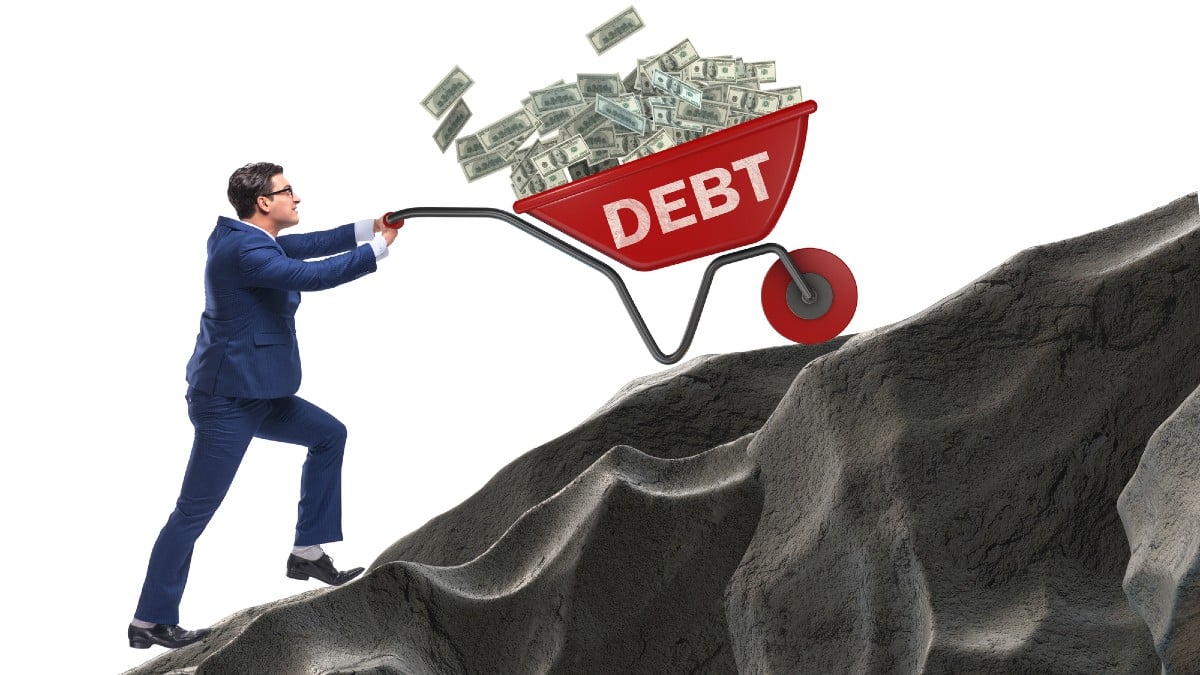The financial market is always subject to fluctuations, but there are certain early warning signs that indicate a potential market crash. Staying vigilant to these signs can help investors mitigate losses and make more informed decisions.
1. Skyrocketing Market Valuations

When stock prices soar high above their true value, caution is warranted. It’s like a balloon stretching too thin; eventually, it’s bound to pop. This mismatch signals that the market may be overheating, setting the stage for a potential downturn.
2. Surge in Consumer Debt

The spike in consumer borrowing can be a red flag. Just as a boat takes on water, an economy overloaded with debt struggles to stay afloat. High levels of consumer debt suggest that spending is outpacing income, a precarious position that can precede a crash.
3. Falling Housing Prices

A sudden drop in real estate values often precedes wider economic troubles. Think of it as the canary in the coal mine, warning of toxic conditions ahead. Federal Reserve Bank of St. Louis provides a wealth of historical data on various economic indicators like interest rates, housing prices, and consumer debt.
When homeowners and investors start feeling the pinch, it can ripple through the economy, signaling deeper issues.
4. Inverted Yield Curve

An inverted yield curve happens when long-term interest rates fall below short-term rates. It’s the financial world’s way of saying it expects trouble. The NBER highlights the inverted yield curve as a reliable indicator of past recessions.
Historically, this inversion has been a reliable precursor to economic recessions, as it reflects investor uncertainty about the future.
5. Rapid Changes in Monetary Policy

When central banks suddenly shift their monetary policy, it’s akin to a driver swerving to avoid an obstacle. Such maneuvers, whether through interest rate hikes or cuts, can indicate attempts to correct or preempt economic imbalances but might also signal that rough terrain lies ahead.
6. Excessive Speculation

When investment decisions are driven more by the hope of quick profits than by fundamental values, the market becomes a high-stakes gamble.
It’s like a game of musical chairs—eventually, there won’t be a seat for everyone when the music stops. Excessive speculation can inflate asset prices, creating a bubble that’s bound to burst.
7. High Volatility

Sudden, sharp fluctuations in stock prices can indicate nervousness and uncertainty among investors. Imagine a sea with unpredictable, rough waves; means that the weather might change for the worse. Such volatility often precedes major market corrections as investors react to rumors, news, or economic indicators.
8. Divergence Between Stock Market and Economy

When the stock market’s performance significantly outpaces the actual growth of the economy, it’s akin to a tree growing too far from its roots—it becomes unstable. This disconnect suggests that investor optimism may not be grounded in economic reality, making the market vulnerable to a correction.
9. Decrease in Corporate Profits

Earnings are the lifeblood of companies, and a widespread decline in corporate profits can foreshadow economic trouble. Suppose a factory slows down production; it might predict that demand may be waning, which can precede layoffs, reduced spending, and, ultimately, a market downturn.
14. Sudden Spike in Commodity Prices

Commodities like oil, gold, and metals are the raw materials that fuel economies. A sudden and sustained spike in these prices can act as a stress test for economic and market health. It’s like a sudden increase in the cost of fuel for a fleet of ships. It can raise operational costs across the board, squeeze profits, and lead to inflation, all of which can contribute to economic and market downturns.
11. Unusually Low Unemployment Rates

While low unemployment is generally positive, rates that seem too good to be true can indicate an overheating economy. Imagine a car engine running too hot; eventually, it’s going to need to cool down. Such conditions can lead to inflationary pressures, prompting central banks to raise interest rates, which can cool off investment and spending, potentially triggering a market downturn.
12. Decreasing Consumer Confidence

When consumers start losing confidence in the economy, it’s a sign that rough waters may be ahead. This sentiment acts as the wind in the sails of the economy; without it, economic activity can slow, leading to decreased spending, reduced earnings for companies, and, ultimately, a market correction.
13. Tightening Credit Conditions

Banks and lenders tightening their lending criteria is akin to the flow of a river slowing down—it can signal that the financial system is bracing for tougher times.
When credit is harder to come by, businesses and consumers cut back on spending and investment, which can lead to a slowdown in economic growth and impact market sentiment.
14. Overreliance on a Single Sector

If a market’s bullish trends are driven primarily by one sector, such as tech, it’s akin to a ship relying on a single sail. Should anything happen to destabilize that sector, it could capsize the broader market. Diversity in market leadership is crucial for stability, and overreliance on a single sector can be a warning sign of vulnerability.
50 Super Simple Side Hustle Ideas

50 Super Simple Side Hustle Ideas (& How to Make Them Work)
10 Frugal Lessons I Learned From Being Flat Out Broke

10 Frugal Lessons I Learned From Being Flat Out Broke
How To Make Money Without a Job

How To Make Money Without a Job
Creative Ways To Make Money

20 Easy Ways to Raise A Credit Score Fast

Read More: 20 Easy Ways to Raise A Credit Score Fast
Frugal Living Tips: The Essential Guide To Start Saving Money

Frugal Living Tips: The Essential Guide To Start Saving Money


 Get more stories from Bento Bucks on money hacks and trending money news!
Get more stories from Bento Bucks on money hacks and trending money news!